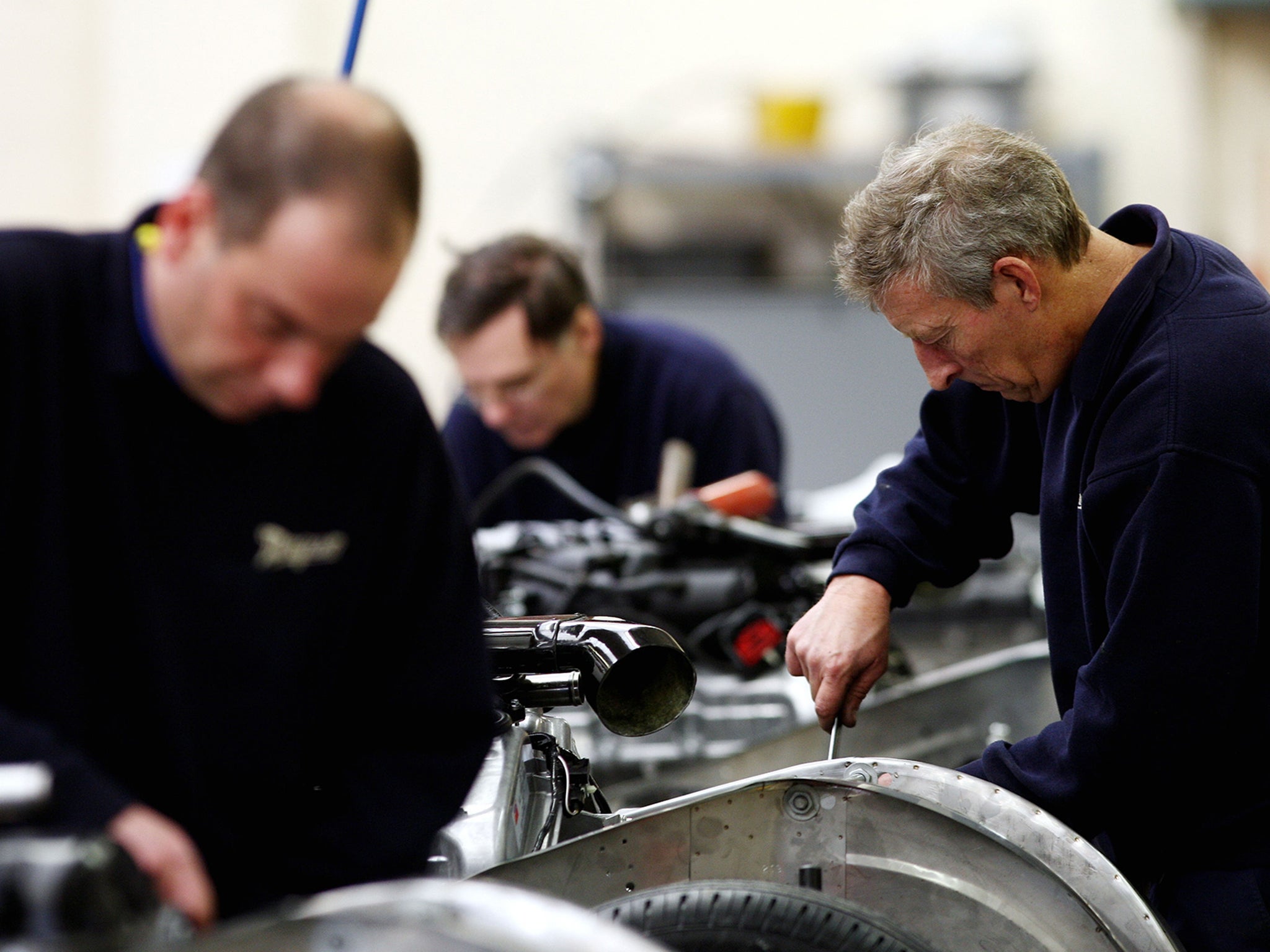Levelling-up requires trillions not billions, economists warn
Current figures announced by government fall far short of what’s required, they claim

Your support helps us to tell the story
From reproductive rights to climate change to Big Tech, The Independent is on the ground when the story is developing. Whether it's investigating the financials of Elon Musk's pro-Trump PAC or producing our latest documentary, 'The A Word', which shines a light on the American women fighting for reproductive rights, we know how important it is to parse out the facts from the messaging.
At such a critical moment in US history, we need reporters on the ground. Your donation allows us to keep sending journalists to speak to both sides of the story.
The Independent is trusted by Americans across the entire political spectrum. And unlike many other quality news outlets, we choose not to lock Americans out of our reporting and analysis with paywalls. We believe quality journalism should be available to everyone, paid for by those who can afford it.
Your support makes all the difference.The British government’s flagship levelling-up policy risks falling far short of what’s required, economists have warned.
The reprimand comes after prime minister Boris Johnson launched his key policy with a speech on Thursday, ahead of a detailed policy plan expected in the autumn.
So far, the figures and timeline attached to the effort are dwarfed by the true funding and long-term view required for meaningful results, economists and policy experts told The Independent.
“It’s a matter of decades and trillions not years and billions,” said Torsten Bell, chief executive of the Resolution Foundation, a think tank. Mr Bell said the example of Germany, which Mr Johnson noted in his speech, underscored the shortfalls in the UK effort so far.
“Germany has succeeded in levelling up where we have not,” Mr Johnson said.
After the fall of the Berlin wall, Germany, the largest economy in Europe, invested more than two trillion euro in trying to make the former communist East as prosperous as the West of the country. Despite the vast effort, there are still significant regional inequalities in the country.
Every eastern region lags even the least productive region in the west, according to the Germany’s ministry for the economy, which does an annual examination of the impact of unification. In 2018, unemployment was still more than two percentage points higher in east Germany, at 6.9 per cent than in the west, at 4.8 per cent.
Britain’s levelling-up effort also risks falling prey to a politically led rather than economically sound approach, experts warned. Offering local councils in marginal constituencies the chance to bid for a few millions of pounds each, such as the government’s Freeports programme and Town Deals, would have little or no meaningful impact on improving productivity in poorer regions, they said.
“You have to look at where this government was voted in: the gains in the midlands and the north were outside the main cities,” said Andrew Carter, chief executive of the Centre for Cities, a think tank. So far that’s where cash has been targeted, at towns rather than cities, he said.
“The politics of this take you in one direction. The reality takes you in another, to the big urban areas [such as Manchester and Birmingham],” he said.
Instead of infrastructure projects that might only relocate rather than create high value jobs, the government would be better off repairing the adult education sector, said Ian Mulhern, executive director of UK policy and chief economist at the Tony Blair Institute.
He added that the government’s figures fell far short of what would be required for its workforce to be well-suited to the needs of a modern, highly productive economy.
“It doesn’t seem enough to put a few million back in the pot,” Mr Mulhern said. “It doesn’t even take us back to where we were 10 years ago.”
Since the 2000s, there have been severe cuts to spending on adult education. Spending is now almost two-thirds less in real terms than in 2003-4 and around 50 per cent lower than in 2009-10 according to figures from the Institute for Fiscal Studies’ 2020 annual report on education funding.
Other countries, such as Switzerland, which perform well on scores of relative economic wellbeing do so because of extreme devolution, allowing their Cantons significant autonomy, said Matthew Whittaker, chief executive of Pro Bono Economics. This has a profound impact on relations between local businesses and communities, Mr Whittaker said.
“Companies in Switzerland would see it as their civic duty to invest in local skills. Something we don’t do so much in the UK,” he said.
A far greater effort to give decision making over large sums was required to allow cities and regions to fix their particular economic problems with bespoke solutions, Whittaker said. Birmingham has relatively low employment rates, whereas Manchester has a large gap between relative wealth and Bristol’s locals are priced out of the housing market.
“We all want a new bridge where that helps you get over a river,” said Mr Whittaker. But taking a cookie-cutter approach with a narrow focus by central government “misses a trick,” he said.
The prime minister said he would avoid a “one size fits all template”, but stopped short of explaining how this would be achieved. Instead, he said he wanted others to offer a plan to government for local engagement to make levelling up work admitting that central government had “crushed” local government in the past because “municipal socialist governments were bankrupting cities”.
Ultimately, three things need to shift by the autumn if levelling-up is to be taken more seriously, and amount to more than rhetoric, economists believe.
“The quantum of cash, the longevity of the commitment, and the flex given to local government,” Mr Carter said.



Join our commenting forum
Join thought-provoking conversations, follow other Independent readers and see their replies
Comments